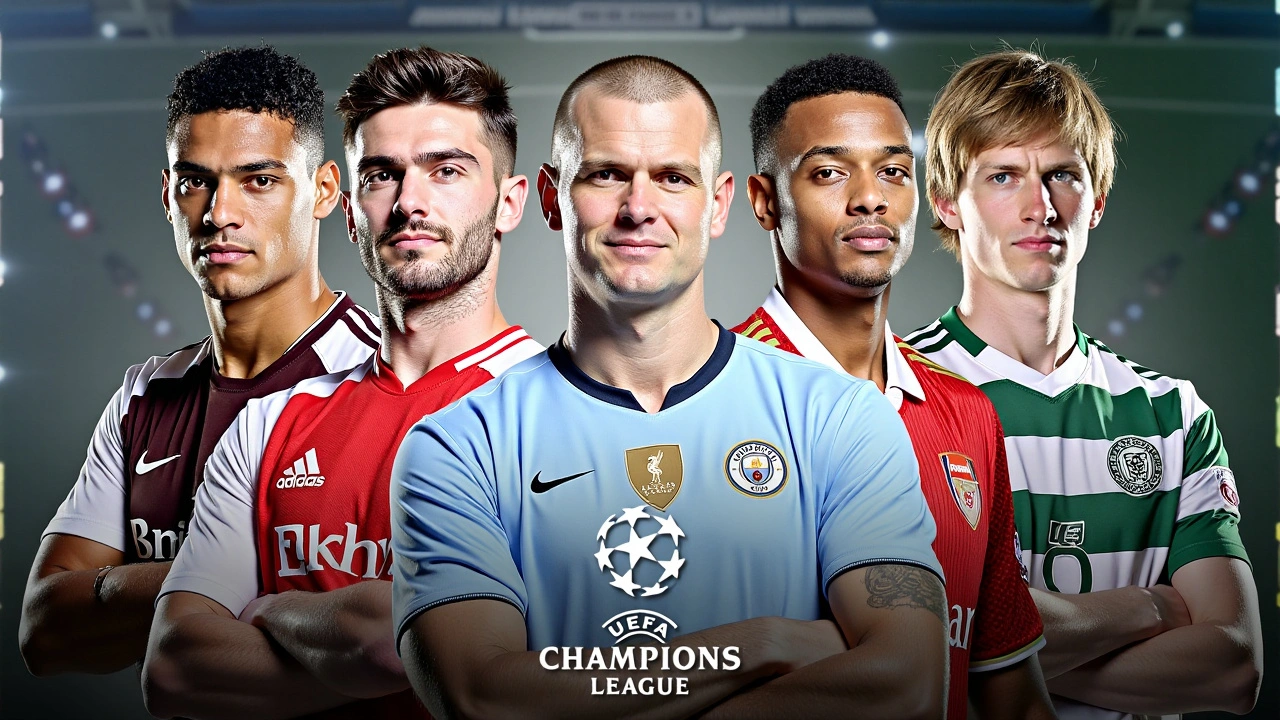Champions League 2024/25: A New Era of European Football
The 2024/25 UEFA Champions League is set to revolutionize European football with an all-new format that shifts from traditional group stages to a more dynamic league phase. This groundbreaking change aims to enhance competition and engagement, bringing a fresh dynamic to the premier club competition in the world. Football enthusiasts can look forward to an exciting calendar of matches, featuring Europe's top clubs competing in this revamped format.
The New Format Explained
Unlike previous seasons, the new format includes a single league comprising 36 teams. Each team will face eight different opponents, divided equally between home and away matches. This departure from the traditional group stage setup aims to foster more unpredictability and excitement throughout the league phase. Traditionalists might miss the familiar structure, but the new format promises fresh matchups and new rivalries. Fans can expect eight exhilarating matchdays spread across several months, each bringing new hope and challenge for the teams involved.
Points System and Qualification
The points system remains straightforward and familiar. Teams will earn three points for a win and one point for a draw. The competition becomes fierce as teams vie for top spots in the single league table. The top eight teams will directly qualify for the knockout stages, ensuring a reward for consistent performance. Teams finishing between ninth and 24th places will get another chance to advance as they will enter a two-legged play-off round to secure their spot in the last 16. However, the stakes are high, as the bottom 12 teams will be eliminated without any fallback into the Europa League, heightening the pressure to perform across all matches.
Exciting Fixtures and Key Matchdays
The league fixtures are scheduled to provide a steady stream of action-packed matchdays. The competition kicks off with Matchday 1 from September 17-19. Notable fixtures include Manchester City clashing with Inter Milan and Celtic taking on Slovan Bratislava on September 18, setting the stage for thrilling encounters right from the start. Each matchday thereafter will incrementally build the tension, leading up to the final match day on January 29. The knockout stages will commence with play-offs on February 11-12 and 18-19, followed by the Round of 16 on March 4-5 and 11-12. April will see the quarter-finals on the 8-9 and 15-16 and the semi-finals on April 29-30 and May 6-7. The culmination of the tournament will be the grand finale that football fans eagerly await.
Participating Teams and Star Players
This season, clubs from Europe's elite footballing nations are set to compete, including heavyweights like Manchester City, Arsenal, Liverpool, and lesser-known but equally passionate contenders like Aston Villa and Celtic. These clubs, many of which boast rich European histories, will aim to either reinforce their footballing legacy or create new chapters of success on this grand stage. Their rosters feature some of the world's finest talents, promising thrilling displays of skill and tactical prowess. From City's intricate plays orchestrated by Kevin De Bruyne to Liverpool's high-octane pressing game led by Mohamed Salah, each game will showcase high-quality football.
Implications of the New Format
The revamped format of the Champions League is designed to inject an extra layer of excitement and unpredictability into the tournament. By eliminating the safety net of the group stage and ensuring that every match truly counts, the stakes are elevated for all participating teams. This structure also addresses criticisms of predictability in the traditional format, where dominant teams often secured qualification early in the group stage. The new system encourages continuous top-level performance across all fixtures, making the league phase more engaging and competitive.
For the football community, these changes bring both challenges and opportunities. Clubs will need to adapt to the new demands of a condensed fixture list where every game is significant. Coaches might rotate squads more strategically to keep players fresh and maintain peak performances throughout the league phase. Fans, on the other hand, can revel in the increased frequency of high-stakes matches featuring their beloved teams against varied competition.
An Anticipation of New Rivalries and Histories
With the league phase ensuring a mix of opponents, the Champions League 2024/25 is poised to create unexpected and thrilling rivalries. Teams that may not usually face each other will now meet, potentially giving rise to new narratives and footballing folklore. Clubs like Aston Villa or Slovan Bratislava might find themselves up against European giants, presenting underdog stories that fans love. This unpredictability and fresh set of fixtures could rejuvenate interest and support for the Champions League.
Through its innovative restructuring, the 2024/25 UEFA Champions League aims to capture the essence of competitive sports: unpredictable results, dramatic comebacks, and the continual quest for excellence. Football lovers around the globe will undoubtedly be glued to their screens as the drama unfolds from September through May. With a roster of exciting fixtures and talented teams, this season promises to be one for the history books.

Ghanshyam Kushwaha
September 18, 2024 AT 11:50eliana levi
September 19, 2024 AT 20:46Brittany Jones
September 21, 2024 AT 18:10SUBHANKAR DAS
September 23, 2024 AT 12:13Secret Lands Farm
September 24, 2024 AT 11:35Tamir Duberstein
September 25, 2024 AT 21:44John Bothman
September 27, 2024 AT 06:52Dinesh Gupta
September 27, 2024 AT 14:09Shalini Ambastha
September 29, 2024 AT 00:37Amanda Kelly
September 30, 2024 AT 07:23Jessica Herborn
October 1, 2024 AT 16:19Lakshmi Narasimham
October 3, 2024 AT 11:59Madhuri Singh
October 4, 2024 AT 02:34Amanda Dempsey
October 4, 2024 AT 02:40Ruth Ellis
October 4, 2024 AT 21:21Peter Novák
October 6, 2024 AT 17:24Siphosethu Phike Phike
October 6, 2024 AT 19:34Mitchell Ocran
October 7, 2024 AT 02:49Todd Gehrke
October 8, 2024 AT 22:35Allison Brinkley
October 10, 2024 AT 07:06